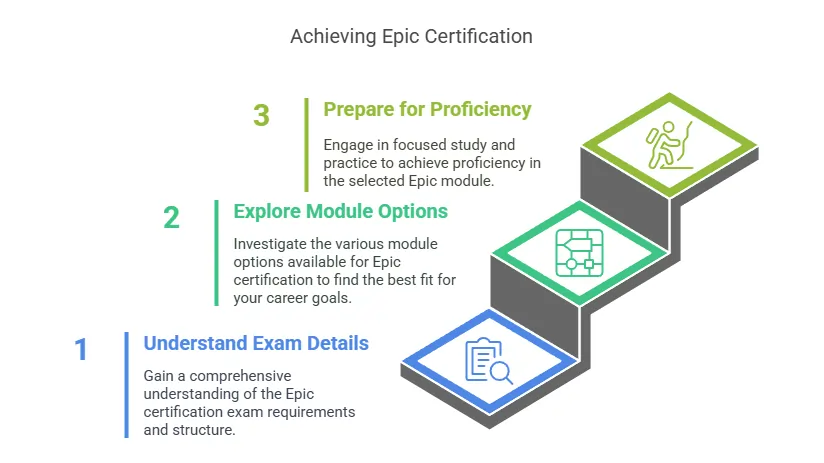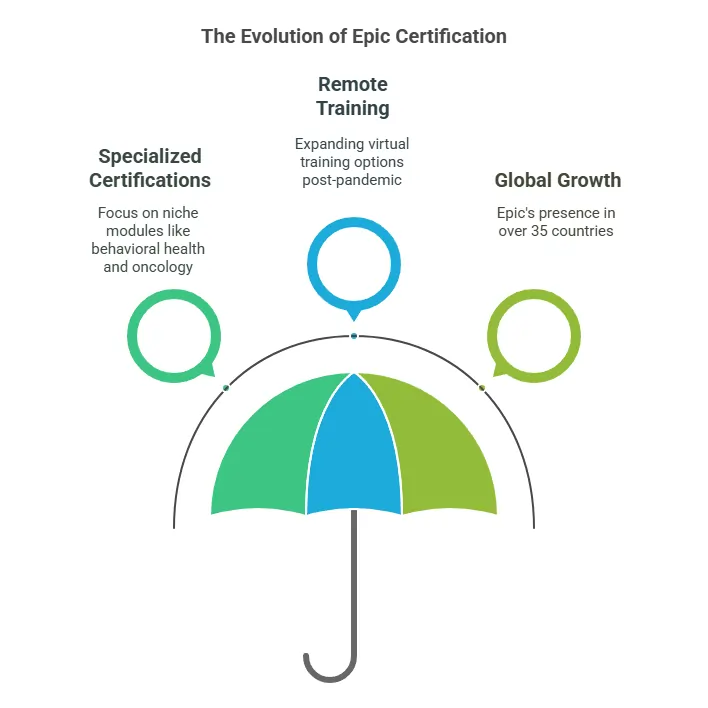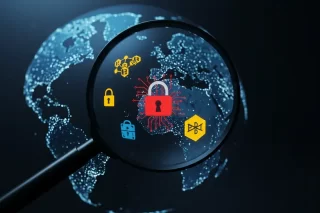
If you’re exploring opportunities in the healthcare IT career space, you’ve probably heard whispers about Epic Systems certification. This gold-standard credential is more than just a resume booster—it’s a gateway to higher salaries, impactful roles, and a seat at the table in the fast-evolving world of healthcare information technology. But what does it really take to get Epic certified, and is it worth the effort? Let’s break it down.
Why Epic Certification Matters in Modern Healthcare
Epic Systems dominates the healthcare industry as the leading electronic health record (EHR) system, managing patient records for over 250 million people globally. Hospitals, clinics, and healthcare providers rely on Epic’s software to streamline operations, improve patient care, and meet regulatory standards. But here’s the kicker: healthcare facilities can’t maximize their Epic investment without certified professionals who truly understand the system.
Whether you’re eyeing Epic analyst positions or aiming to lead Epic implementations, certification validates your expertise. Studies show certified professionals earn 10–20% higher salaries than their non-certified peers, and demand is soaring. But before you jump in, let’s demystify the Epic certification process.
The Certification Journey: From Sponsorship to Exam

Step 1: Secure Sponsorship
Unlike most certification programs, you can’t simply enroll online. To pursue Epic certification, you need sponsorship from an employer or organization already using Epic. This is non-negotiable. Healthcare organizations often sponsor employees during Epic project rollouts or system upgrades. If you’re not already working at a hospital system, landing a role that includes sponsorship is step one.

Step 2: Choose Your Certification Path
Epic offers dozens of specialized certifications, each tied to a specific Epic module (e.g., Epic EHR for clinical workflows or Epic Cupid for cardiology). Your certification path depends on your career goals. Popular options include:
- Epic Proficiency vs. Certification: Proficiency shows basic competency, while certification requires mastery.
- Certified Analyst: Ideal for IT professionals managing Epic software day-to-day.
- Epic Project Management: For leaders overseeing system implementations.

| Aspect | Proficiency | Certification |
|—————————|————————–|—————————|
| Depth of Training | Basic system navigation | In-depth configuration |
| Exam Difficulty | Moderate | Rigorous |
| Career Impact | Entry-level roles | Leadership opportunities |
Step 3: Dive into Training
Once sponsored, you’ll access Epic UserWeb, the portal housing training materials, virtual labs, and schedules for in-person training at Epic’s Wisconsin campus. Most training programs include:
- Eight weeks of classes: Mix of virtual and on-site sessions.
- Hands-on practice with Epic electronic health record tools.
- Access to mentors and Epic-certified experts.
Pro tip: Don’t skip the training materials! One study found candidates who completed all coursework passed the certification exam 75% more often.
Read More https://prepare4test.com/palo-alto-certification/
The Good, the Bad, and the Epic
Why Get Certified?
- Salary Boost: Certified analysts earn ~$95k/year vs. $78k for non-certified peers.
- Job Security: 82% of healthcare facilities prioritize hiring certified professionals.
- Career Flexibility: Open doors to consulting, training, or project management.

Challenges to Watch For
- Sponsorship Hurdles: No employer? No certification. This creates a Catch-22 for newcomers.
- Time Commitment: Six to eight weeks of intensive training + exam prep.
- Costs: While employers usually cover fees (up to $10k), delays or failures can sting.
One consultant shared: “Losing access to training environments between projects was a nightmare. I’d finish a module, then get locked out!”
Consultant vs. Full-Time Staff: Which Path Wins?
Wondering whether to chase consulting gigs or settle into a stable hospital role? Let’s compare:
| Factor | Consultant | Full-Time Staff |
|---|---|---|
| Pay | Higher hourly rates (~$100–150/hr) | Stable salary + benefits |
| Job Stability | Project-based; gaps between contracts | Long-term security |
| Work Variety | Exposure to multiple Epic modules | Deep expertise in one system |
| Travel | Frequent (75%+ on the road) | Minimal (onsite or hybrid) |
Hybrid models are rising. Stanford Medical Center saved 23% on implementation costs by blending consultants with internal experts.
Tips to Ace Your Epic Systems Certification Exam
- Practice Relentlessly: Use Epic software daily—the exam tests real-world troubleshooting.
- Join Study Groups: Collaborate on Epic UserWeb forums or Reddit communities.
- Focus on Weak Spots: Struggling with patient care workflows? Drill those training materials.

The Future of Epic Certification

With EHR systems becoming healthcare’s backbone, Epic-certified talent will stay in demand. Emerging trends include:
- Specialized Certifications: Niche modules like behavioral health or oncology.
- Remote Training: Post-pandemic, virtual options are expanding access.
- Global Growth: Organizations using Epic now span 35+ countries.
People Also Read https://prepare4test.com/blog/
Final Thoughts: Is Epic Certification Worth It?
Absolutely—if you’re committed to a healthcare IT career. The certification test is tough, the sponsorship hurdle is real, and balancing eight weeks of classes with work isn’t easy. But for those who persist, Epic certification unlocks doors to higher salaries, leadership roles, and the chance to shape the future of patient care.
Ready to become certified? Start by networking with healthcare organizations and sharpening your IT skills. The journey’s challenging, but as one certified analyst put it: “Epic certification didn’t just change my career—it redefined how I see healthcare technology.”

Whether you’re a seasoned IT pro or a healthcare worker looking to pivot, Epic certification offers a dynamic path forward. Just remember: Success requires equal parts preparation, persistence, and passion for improving healthcare systems. Now, go get Epic certified—your future self will thank you!
FAQs
What is the Epic certification program and why is it valuable?
The Epic certification program is a comprehensive credentialing system designed for healthcare IT professionals who work with Epic Systems’ electronic health record (EHR) software. Epic certification is a credential that validates your expertise in implementing, supporting, or utilizing specific Epic applications. This certification is highly valued in the healthcare industry because Epic is the leading EHR system used by many top hospitals and healthcare organizations across the United States.
The value of becoming certified in Epic extends beyond just having a credential on your resume. It opens numerous career opportunities in healthcare IT, consulting, and implementation roles. Professionals who earn Epic certification typically command higher salaries, enjoy greater job security, and have more advancement potential than their non-certified counterparts. Additionally, as healthcare organizations continue to digitize their operations, the demand for Epic-certified professionals continues to grow steadily.
How can I get Epic certification if I’m not currently employed by a healthcare organization?
One of the most challenging aspects of the Epic certification program is that you cannot simply sign up for it independently. To get Epic certification, you must be sponsored by an employer that is an Epic client or a consulting firm with an established relationship with Epic Systems. This is one of the specific requirements set by Epic to maintain the quality and integrity of their Epic Systems certification process.
If you’re not currently employed by an Epic client organization, here are some pathways to consider:
1. Apply for entry-level positions at healthcare organizations that use the Epic system, such as patient access representatives, medical records staff, or clinical support roles.
2. Look for consulting firms that specialize in Epic implementations and may sponsor promising candidates for certification.
3. Consider roles at third-party healthcare IT companies that partner with Epic and may offer pathways to become accepted into an Epic certification track.
4. Network with professionals already working in the Epic ecosystem who might provide referrals or insights about organizations currently sponsoring certifications.
What are the different types of Epic certifications available?
There are various types of Epic certifications available for different job roles within the healthcare industry. To achieve certification, candidates must complete an Epic certification training program and take the certification exam. This in-depth training is provided by Epic at their training facility.
The benefits of Epic certifications include enhanced skills in using Epic systems and increased job prospects. Epic provides certifications for various modules, and becoming certified requires mastering the chosen Epic application. Obtaining a certification within a popular Epic module can significantly boost a professional’s career.



